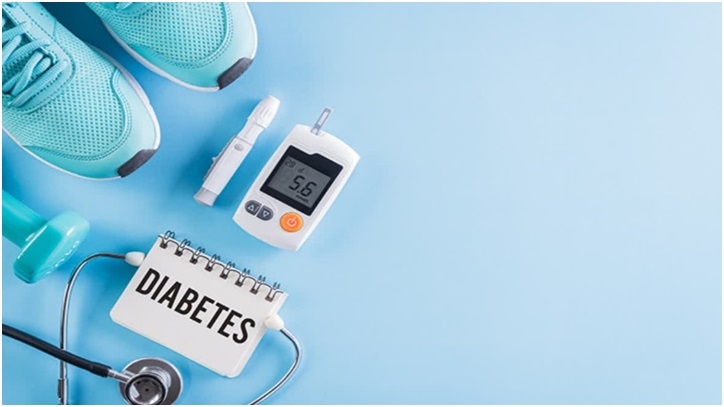Doctors Warn Diabetes Can Cause Diabetic Retinopathy, A Deterioration In Vision
Total Views |

Every festival and celebration in India is celebrated with sweets in public and private life, which doctors say is not a good option. However, it seems people do not see beyond fast food and sweets to celebrate special occasions. In fact, reports published on November 14, BJP state executive committee member Krishna Singh Kallu has placed orders of 500 kilograms laddus and 5 lakh rasgullas in anticipation of victory in the Bihar elections.
Doctors have warned citizens from cutting down on sugar, fast food and most of all, have recommended that people, especially young children need to cut down on screen time. It is often seen, parents would rather give their toddlers an i-Pad or cellphone so that they sit in one place and have their meals, which doctors warn is not good at this young age.
In the last decade, the rate of deterioration in the health of children has been on the rise due to increased screen time, due to numerous reasons like lack of open grounds, parks, parents not allowing children to mix, more screen activities and minimal physical activity. Doctors warn that lethargic living habits, along with high consumption of sugar can lead to disorders in vision.
"There is an increasing prevalence of juvenile diabetes among the children in India, and unless major changes to their lifestyles are not made, it can pose a threat to children's vision, if not addressed in time," Dr Arun Singhvi of ASG Eye Hospital told ETV Bharat. He warned, "The coming years could be difficult if measures are not taken at an appropriate time because diabetes brings with it, a disorder that gradually reduces vision in a hidden way, which is called diabetic retinopathy."
In a paper published in the Indian Journal of Clinical and Experimental Ophthalmology, written by Hannah Ranjee Williams, "International Diabetes Federation (IDF) estimates that globally over 537 million people have diabetes, and this is expected to rise to 643 million by 2030. India is often referred to as the 'diabetes capital of the world,' as it is estimated that it has over 101 million diabetics."
"Studies estimate that the prevalence of diabetic retinopathy among Indian diabetics ranges from 12 per cent to 22 per cent, with higher rates observed in urban populations due to lifestyle factors, while rural areas have lower awareness and limited access to eye care services so often present with more advanced disease," it said.
A nationwide study shows the prevalence of this condition was 'as high as 16.9 per cent among those aged 50 years and above.' The Indian government has integrated diabetic retinopathy screening into the National Programme for Control of Blindness (NPCB), and this has benefitted numerous diabetic patients. Exclusive eye camps for the detection and treatment of diabetic retinopathy are the future of screening and treatment for this potentially blinding disease. Doctors say the risk of obesity, high blood pressure and diabetes is increasing rapidly in children. It is now the need of the hour for parents and teachers to seriously monitor the routine of their children and encourage them to play more than screen time. Visual deterioration is not easily noticeable, and doctors recommend children with juvenile diabetes to have regular eye examinations.
According to a study (Diabetes in children) conducted by the Indian Council for Medical Research, in 2023-24, 97,700 children in India have type 1 diabetes, while 95,600 children under 14 years of age have type 1 diabetes.
Dr Samir Dimble, medical officer of Brihanmumbai Municipal Corporation (BMC) hospital at Kandivili, said, a study by Organisation Research for Policy (ORF) stated there are 301,000 (a little less than 3 lakh) children in the age group of 0-19 with type 1 diabetes. An estimate of about 1 lakh to 3 lakh children in India may have diabetes (mainly type 1).
Dr Dimble added, "Children have to be kept away from sugar, soft drinks, wafers, biscuits and sweets. Parents need to get them to run or exercise for nearly an hour, which can include cycling, playing, or any physical exercise, which is good for their health."
Both Dr Singhvi and Dimble have recommended children to eat fruits and avoid taking juices; eat protein, lentils and have home-made food. "However, they should not be given carbohydrates. Rice, chapatis, potatoes, all are carbs. Instead, the children can be given paneer, tofu, eggs, and dals," said Dr Dimble.
Doctors recommend regular check-ups and have said caution is better than cure.

